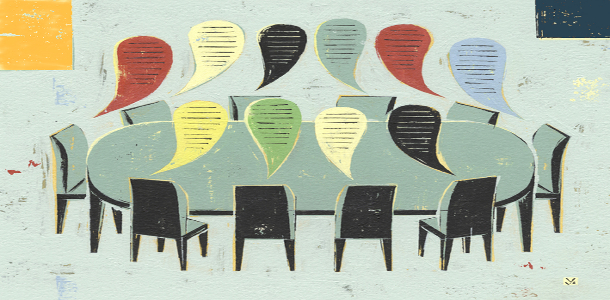Posted by laurajane on Jul 26, 2012 in Uncategorized | Comments Off on How to write for your readers — not your executives





Posted by laurajane on Jul 18, 2012 in Uncategorized | Comments Off on 22 filler terms we abuse every day—and how to avoid them
22 filler terms we abuse every day—and h...
by Laura Hale Brockway Have you ever been in a conversation with a seemingly smart, rational person who says something utterly absurd? It can leave one at a loss for words. “Uh-huh,” might be the only available response, followed by, “Gee, how ’bout those Cubs?” Absurd or baffling statements aside, too often we find ourselves filling silences with pure twaddle. I recently made a list of these awkward filler terms. Though they might appear to keep conversation flowing, they’re nothing more than verbal speed bumps. And when I started paying attention, I...

Posted by laurajane on Jul 11, 2012 in Uncategorized | Comments Off on 16 reference works you never knew existed
16 reference works you never knew existe...
by Laura Hale Brockway Being a science and medical writer at my day job, I often end up spending more time researching an article than I do writing it. And after 14 years, I’ve come to relish the research phase. When else can I so freely indulge my inner knowledge hound? One of the greatest joys of researching is discovering unusual and obscure reference works. If you look hard enough, you’ll find a wealth of information about even the most obscure topic. Here are some of my favorites: Benet’s Reader’s Encyclopedia — referred to as “the supreme reference...

Posted by laurajane on Jul 4, 2012 in Uncategorized | Comments Off on 6 incredibly useful spelling rules from childhood
6 incredibly useful spelling rules from ...
by Laura Hale Brockway, ELS For every rule, there is an exception—especially when it comes to English spelling. PR Daily readers are, of course, adroit spellers. We’ve been writing and editing for so long, spotting spelling errors is a reflex. But examine how certain English words are spelled, and you’ll pick out more inconsistencies than a fact-checker reviewing a Hunter S. Thompson article. In English, we have words that sound the same but are spelled differently (such as “their,” “they’re,” and “there”); words with letters that have nothing to do...

Posted by laurajane on Jun 27, 2012 in Uncategorized | Comments Off on 8 useful insights for writing irresistible web copy
8 useful insights for writing irresistib...
by Laura Hale Brockway, ELS When I was in journalism school, our writing classes focused on feature writing and news writing. The Internet was in its infancy, so there was no formal instruction on “writing for the Web.” But to me—and I would guess many other J-school graduates—writing is writing. The audience and the medium are different, but we adapt our style accordingly. In learning to adapt my style for the Web, I discovered Letting Go of the Words: Writing Web Content that Works, by Janice Redish. This book—filled with practical advice and case studies—is...

Posted by laurajane on Jun 20, 2012 in Uncategorized | Comments Off on 17 verbs that cut fat from your writing
17 verbs that cut fat from your writing
by Laura Hale Brockway Verbs are the powerhouse of your sentences; choose them wisely. Another issue that I see frequently in the work that I edit is weak verbs coupled with nouns that are strong verbs in disguise. Consider the following sentences: The managing editor made a recommendation to use a new style guide. The managing editor recommended a new style guide. In the first sentence, made is a weak verb used with the noun recommendation. But as the second sentence demonstrates, you can simplify and strengthen the sentence by using recommend as the verb. Here...

Posted by laurajane on Jun 13, 2012 in Uncategorized | Comments Off on 33 homophones that ensnare writers and speakers












